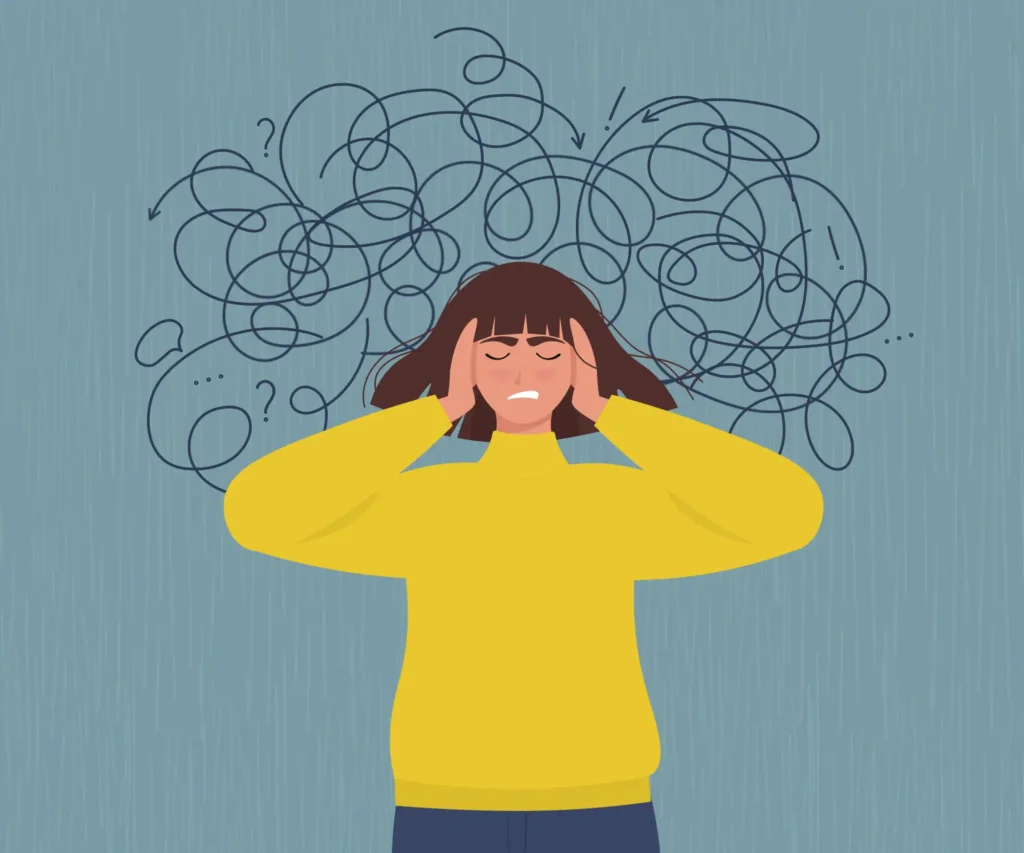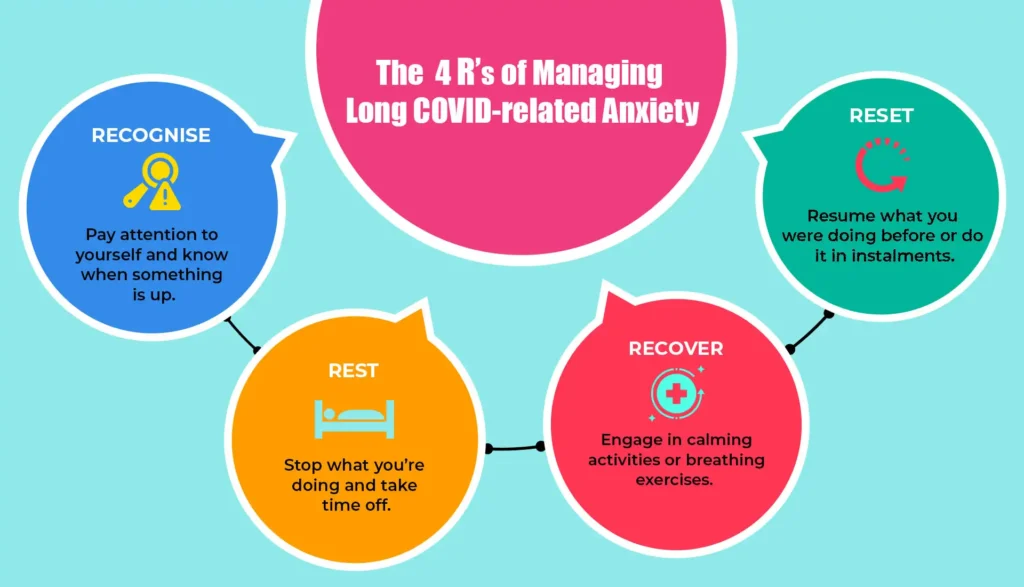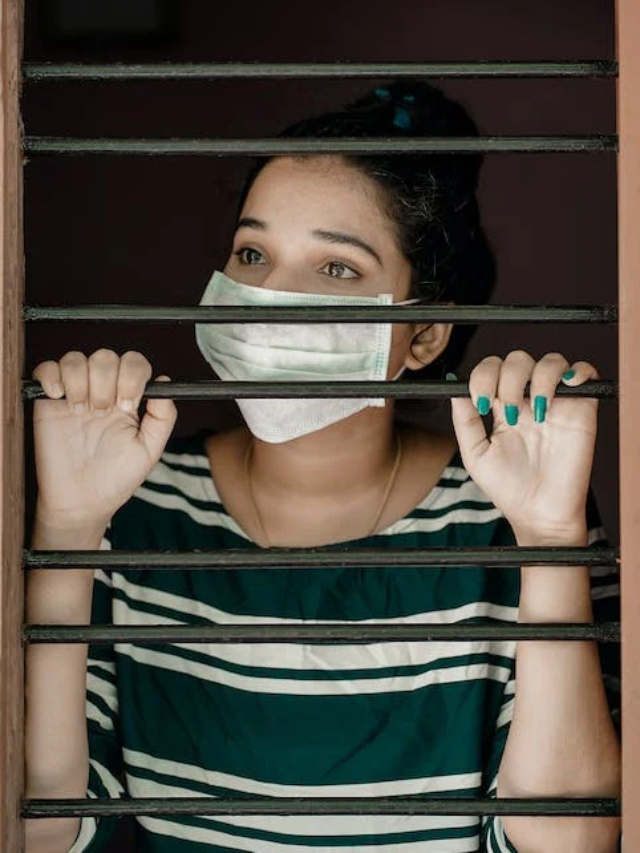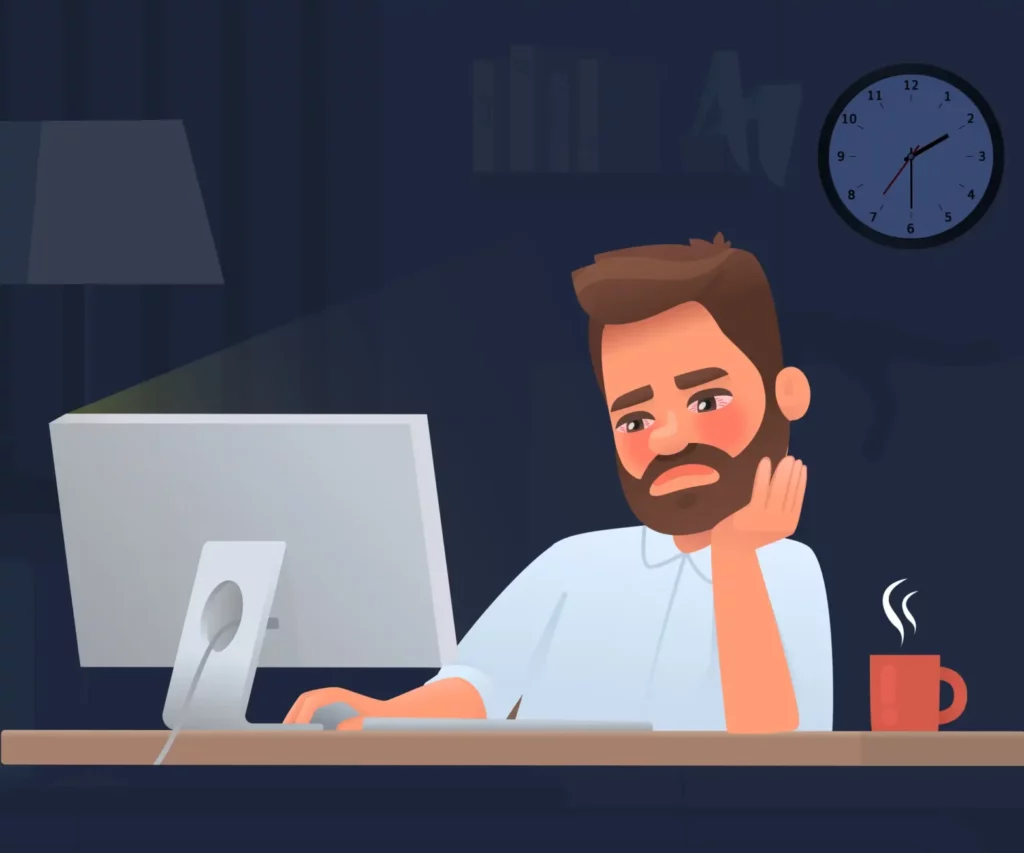
Post-COVID changes are very real. Researchers find that even after COVID-related symptoms disappear and you test negative, you may still suffer long-term effects that could last weeks or even months. These “Long COVID” effects include neurological or brain changes and mental health changes related to mood disorders, anxiety, and sleep disruptions. Read on to learn how to manage Long COVID-related anxiety.
COVID and anxiety
Have you been experiencing increased worry or ‘jitteriness’? A vague feeling of uneasiness or anticipating something negative, even if you can’t put your finger on it? Anxiety is basically a state where you expect something unfavourable to happen. It can produce various mental and physical symptoms, including sharper breathing, muscle tension, ‘racing thoughts’, an inability to focus, sweating, and restlessness.
Many people around the world have experienced greater anxiety since the pandemic began in early 2020. Most of these anxieties were related to one’s health or that of loved ones. Jobs and finances were also a source of anxiety. Beyond these initial causes of concern, research has also shown that people who have had COVID may develop symptoms of anxiety and depression as a part of the ‘Long COVID’ effects.
Long COVID-related anxiety
Someone who has recovered from COVID may respond more anxiously than most to any situation. People with anxiety typically focus more on negative outcomes of events and worry about handling these outcomes. They often have a string of ‘backup plans’ to handle failures or ‘worst-case scenarios’. Anxiety is not only a cognitive or mental process, but it also has distinct physical symptoms, as described earlier. Since these symptoms are unpleasant, a person can worry about experiencing them again and become more anxious.
Unfortunately, many people who have recovered from COVID do not receive enough information about Long COVID and what to watch out for. As a result, they may feel angry or frustrated at themselves or increasingly worried about the changes in their energy and moods. It is also unpleasant because there often may be no apparent cause for these thoughts or sensations.
Increased or chronic anxiety can also lead to tiredness. This effect is important to keep in mind, as fatigue is another common Long COVID effect by itself. Heightened anxiety could worsen this. Anxiety around work, combined with fatigue, can make it even more difficult to focus or concentrate. Society tries to tell us to ‘push through’ and finish work. However, when you are so tired or stressed out, this is likely to be counterproductive as you are unable to focus and may end up making mistakes or ruining the work you have already done! It is far better to pay attention to the physical and mental signals telling you to take some time off to calm yourself and recover energy.
Managing Long COVID-related anxiety
If your physician hasn’t warned you about Long COVID, you might not connect these mental health symptoms with a COVID-19 infection. However, therapists worldwide are now learning more about the psychological and neurological effects of COVID-19. A good therapist will be able to help you see if your symptoms started or worsened after the infection. They can also refer you to a doctor again if needed.
As with any form of anxiety, therapy can help, and regardless of the cause, a therapist can help you with the following:
- Identifying the physical symptoms of anxiety: The therapist will work with you to identify early physical signs of anxiety. This helps prevent full-blown anxiety attacks and also enables you to reduce persistent low-grade anxiety or tension.
- Managing symptoms of anxiety: The therapist will help you physically calm down using specific grounding techniques, cognitive and mindfulness tools (like journaling). These tools and techniques help control the train of negative thoughts, change the way you approach certain situations, etc.
- Recognising external or internal triggers: Once you have learnt to manage anxiety effectively, the therapist will also help you recognise events (even things like hunger and thirst!) that may trigger anxious thinking.
Anxiety is not pleasant to experience, but you can definitely manage it with the right tools. And once you have used these tools to reduce anxiety and feel calmer, you start to feel more confident in your ability to handle this. Consequently, when you become confident about managing your anxiety, future anxiety attacks will feel more manageable from the onset. Additionally, the fear associated with it will reduce.
Working WITH your symptoms
Research shows that Long COVID symptoms can reduce in intensity and frequency, perhaps within six months. That’s good news! But it’s important to remember that in the meanwhile, your body is responding to actual physical and mental changes. You may also be battling other symptoms (such as shortness of breath, muscle weakness, or joint pain), which aggravate stress, anxiety, and fatigue. ‘Pushing through’ or ‘fighting through’ are not great mottos here.
So, have you felt that Long COVID-related anxiety impacts your day? Here are 4 R’s to try and minimise the effect:

A professional can help you develop a more customised plan to manage your symptoms and help you recognise them earlier. Good therapists can also provide you with techniques and insights that can aid you even beyond the current phase of anxiety, low energy, or low motivation. Working with your body instead of “pushing through” will leave you feeling physically and mentally stronger in the long run.



